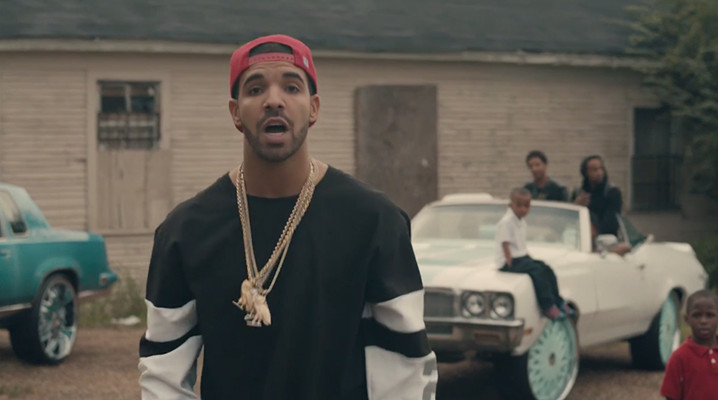In a series of tweets sent earlier today, Meek Mill has claimed Drake doesn’t write his own music. Referring to Drake’s appearance on “R.I.C.O” which features on Meek's new album
Dreams Worth More Than Money, he tweeted: “He ain’t even write that verse on my album and if I knew I woulda took it off my album… I don’t trick my fans! Lol”.
The tweet, although clearly directed at Drake, seemed like an attack on the wider use of ghostwriters in hip-hop. “If Hov gave me a verse somebody wrote I would do the same thing”, he explained. “Don’t compare me to none of the cats that don’t write they own raps”.
Meek Mill – seeing as his opinion on ghostwriters is now out – presumably writes his own raps. When other artists don’t and they’re more successful, it’s understandably perceived as a threat. A slight on all the artists who keep it real, write their own verses, and more often than not, don’t receive the props they deserve. I understand that. But part of me feels ambivalent to the claim Drake isn’t writing every line of his music.
From “Mo Money, Mo Problems” to “Still D.R.E”, ghostwriters have written some of the best hip-hop songs of the last thirty years. Kendrick Lamar and Freddie Gibbs – who
confessed in an interview with Sway to lending his talent to five big name artists – are both notable ghostwriters.
Rumors have circulated that Kanye’s best raps were written by Consequence, and
Ice Cube and MC Ren were the two that made almost all of N.W.A’s verses bite.
Meek’s claim that Drake doesn’t write his own raps isn’t the first time Drizzy’s been accused of using ghostwriters. Last year it was suggested that Toronto artist Shi Wisdom was the songwriter suing Drake for not getting paid for her uncredited contributions. Despite her alleged issue with payment, Shi stated that often, the ghostwriter claims can be blown out of proportion. She
told Noisey in a subsequent interview: “to be a songwriter on a song all you have to do is contribute one word. By the time the ‘R.I.P.’ record I did with Drake was finished, six writers including myself and him touched that song. That wasn’t the plan, but that's what happens: Somebody comes in and says, ‘instead of saying 'boy' say ‘you.’’ Now they’re a writer on the song.”
One particular “long time lurker, first time commenter” on the rampant KanyeToThe forum
found a name in the Take Care linear notes which is listed as a co-writer on 12 different tracks but not mentioned elsewhere – sampling, production, mixing – suggesting that an “A. Palman” helped Drake write most of that record, too.
To me, none of that matters. Whether Drake's raps are entirely ghostwritten, or they’ve been tinkered with by a team of people, subtly adding a word here and there, I don’t care. The point is that his music bangs. It may be wrong, a punch-to-the-stomach of the artists who are capable of delivering the entire artistic package, but the collaboration is powerful. And when it’s resulting in records as good as Take Care or Nothing Was the Same, I’m down.
If the ghostwriter claims were leveraged at someone whose known more for the dexterity of their lyrics - someone like Kendrick Lamar - I wouldn't be as supportive. Kendrick's songs are brilliant because they're centered on dense verses; packed with ripping metaphors and personal stories. Drake's music is different - it's more about the overall feeling. If someone else can help Drake to help me achieve the powerful understanding I get when I hear his music, then so be it. That's cool. I'm just happy that "Marvins Room" exists to remind me I'm not alone in those 3am drunk-dials.
I guess all Meek wants is for people to recognize the prevalence of ghostwriting – which is fair enough. But I’m not about to shrug off Drizzy’s post-emo drinking-wine-on-a-tuesday-night opus because of it.







 not supporting Young Thug, the last true talent to grace our presence.
not supporting Young Thug, the last true talent to grace our presence.  I miss my bae Thugger Thugger
I miss my bae Thugger Thugger








